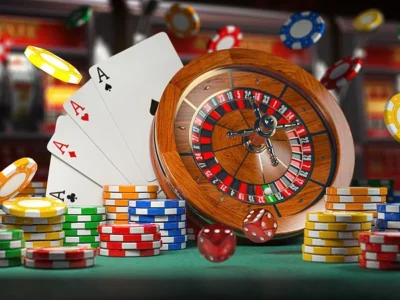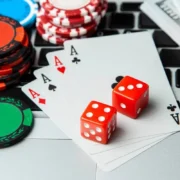
Bitcoin dice games have emerged as more than just another cryptocurrency gambling option; they’ve become unexpected teachers of probability concepts and life lessons. For many players, casual entertainment evolves into a practical education in statistics, risk management, and decision-making under uncertainty. Bitcoin dice platforms’ transparent and provably fair nature provides a uniquely accessible laboratory for experiencing probability theory in action.
The mechanics of Bitcoin dice are elegantly simple: players predict whether a randomly generated number will fall above or below a chosen threshold. This straightforward premise belies the complex probability landscape that unfolds with each roll. Repeated play reveals patterns that mirror fundamental truths about both chance and life.
Statistical literacy through experience
Most people struggle to grasp probability concepts when presented as abstract mathematical formulas intuitively. Bitcoin dice games transform these theoretical constructs into lived experiences, making them tangible and memorable in ways textbooks rarely achieve.
Players quickly learn to appreciate the law of large numbers as they watch short-term variance give way to long-term predictability. A string of losses or wins might seem significant in isolation, but expanded samples inevitably converge toward expected mathematical outcomes. This practical demonstration bridges the gap between theoretical understanding and intuitive comprehension of statistical principles.
Emotional regulation and rational thinking
The most valuable lessons from Bitcoin dice extend beyond probability into psychological territory. It creates a robust environment for learning emotional regulation skills. Players who survive the initial baptism by fire learn to separate feelings from facts, a distinction that proves invaluable in many life contexts. They discover how cognitive biases distort perception, leading to irrational decisions during winning and losing streaks. Through painful experiences, successful players develop the discipline to make decisions based on probability rather than emotion.
This emotional detachment in the face of uncertainty represents a profound life skill with applications far beyond gambling contexts. From financial investments to relationship decisions, the ability to assess situations dispassionately while acknowledging the role of chance creates a foundation for better outcomes across diverse life domains.
Randomness acceptance
Long-term Bitcoin dice players eventually reach a philosophical inflexion point where they either embrace delusion or accept the fundamental randomness governing each outcome. Those who choose reality develop a healthier relationship with uncertainty, recognizing that while they cannot control individual results, they make probabilistically sound decisions over time.
This acceptance of randomness often transfers to broader life contexts, helping individuals distinguish between situations they control and those they cannot. his comment is here about this psychological transition resonates with many experienced players who find themselves applying this mindset to professional challenges, personal relationships, and other areas where uncertainty reigns.
Patience and long-term thinking
Bitcoin dice games reward patient, systematic approaches while punishing impulsive behaviour. Players who chase losses or bet erratically quickly deplete their bankrolls, while those who implement consistent strategies aligned with mathematical expectations tend to persevere. This experiential lesson in delayed gratification transfers readily to other life domains. Many players report developing extraordinary patience in their careers, investments, and personal projects after internalizing the long-term thinking required for sustainable Bitcoin dice play.
The educational value of Bitcoin dice games highlights an unexpected benefit of gambling. Blockchain-based gambling reveals probability mechanics that were once obscured in traditional gambling environments. A mindful approach offers more than entertainment; it educates humans on dealing with uncertainty, perhaps the most universal challenge.










